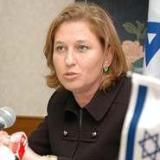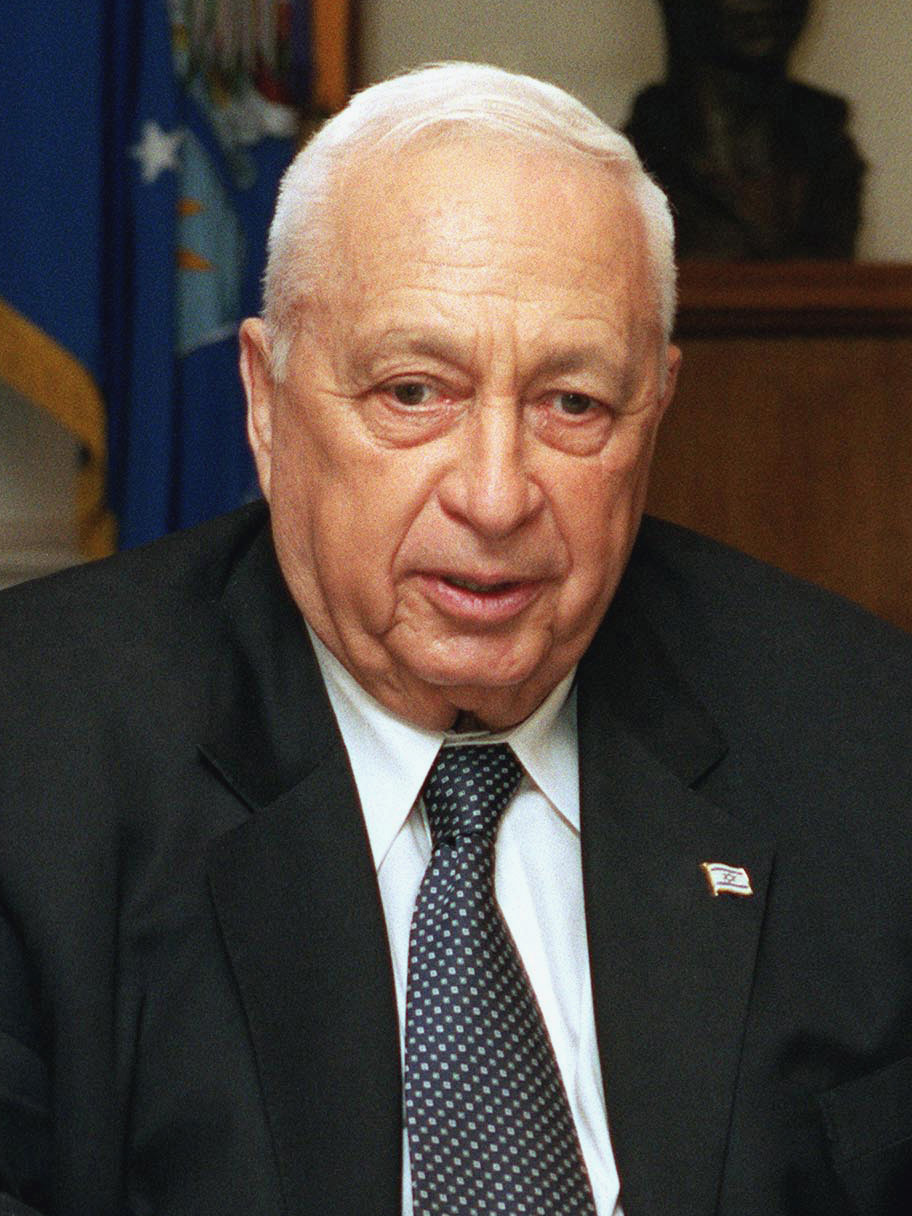|
Roni Brizon
Aharon "Roni" Brizon ( he, אהרן "רוני" בריזון, born 16 October 1944) is a former Israeli politician who served as a member of the Knesset for Shinui and the Secular Faction between 2003 and 2006. Biography Born in Tel Aviv, Brizon gained a BA in political science from the Hebrew University of Jerusalem and a BA in philosophy from Tel Aviv University. in 1999, Brizon joined the Shinui party, and began to write in Tel Aviv's local press under the pen name "Inj Krid Leper" For the 2003 elections he was placed tenth on the Shinui list, and entered the Knesset when the party won 15 seats. During his first term he was a member of the House Committee, the Internal Affairs and Environment Committee, the Finance Committee and the Committee on Foreign Workers. Along with most of the party's MKs, he defected to the Secular Faction (which later became Hetz) shortly before the 2006 elections The following elections occurred in the year 2006. * Elections in 2006 * Elec ... [...More Info...] [...Related Items...] OR: [Wikipedia] [Google] [Baidu] |
Tel Aviv
Tel Aviv-Yafo ( he, תֵּל־אָבִיב-יָפוֹ, translit=Tēl-ʾĀvīv-Yāfō ; ar, تَلّ أَبِيب – يَافَا, translit=Tall ʾAbīb-Yāfā, links=no), often referred to as just Tel Aviv, is the most populous city in the Gush Dan metropolitan area of Israel. Located on the Israeli coastal plain, Israeli Mediterranean coastline and with a population of , it is the Economy of Israel, economic and Technology of Israel, technological center of the country. If East Jerusalem is considered part of Israel, Tel Aviv is the country's second most populous city after Jerusalem; if not, Tel Aviv is the most populous city ahead of West Jerusalem. Tel Aviv is governed by the Tel Aviv-Yafo Municipality, headed by Mayor Ron Huldai, and is home to many List of diplomatic missions in Israel, foreign embassies. It is a Global city, beta+ world city and is ranked 57th in the 2022 Global Financial Centres Index. Tel Aviv has the List of cities by GDP, third- or fourth-largest e ... [...More Info...] [...Related Items...] OR: [Wikipedia] [Google] [Baidu] |
Hatnuah
Hatnua ( he, הַתְּנוּעָה, lit=''The Movement'') was a liberal political party in Israel formed by former Israeli Foreign Minister and Vice Prime Minister Tzipi Livni to present an alternative to voters frustrated by the stalemate in the Israeli–Palestinian peace process. The party was formed by dissidents in Kadima, which Livni, who had led the party's progressive wing, headed until March 2012 when she lost a leadership primary election to rival Shaul Mofaz, who was part of the party's more conservative wing. Although the establishment of Hatnua was announced in late 2012, it is actually based on the infrastructure of Hetz, a faction that broke away from Shinui in 2006. Relatively close in ideology to Yesh Atid and the Labor Party, which focused mostly on domestic and socioeconomic issues in their 2013 campaigns, Hatnua stands out for its aggressive push for a pragmatic peace settlement with the Palestinians. In the 2013 legislative election, Hatnua ran on a join ... [...More Info...] [...Related Items...] OR: [Wikipedia] [Google] [Baidu] |
Shinui Politicians
Shinui ( he, שִׁינּוּי, lit. ''Change'') was a Zionist, secular, and anti-clerical free market liberal party and political movement in Israel. The party twice became the third-largest in the Knesset, but both occasions were followed by a split and collapse; in 1977, the party won 15 seats as part of the Democratic Movement for Change, but the alliance split in 1978, and Shinui was reduced to two seats at the next elections. In 2003, the party won 15 seats alone, but lost them all three years later after most of its MKs left to form new parties. The party was a member of Liberal International until 2009. Though it had been the standard-bearer of economic liberalism and secularism in Israel for 30 years, the formation of Kadima robbed Shinui of its natural constituency, and in January 2006 the party split into small factions, none of which managed to overcome the 2% threshold needed to enter the Knesset. History 1970s As Israel made its transition from a developing n ... [...More Info...] [...Related Items...] OR: [Wikipedia] [Google] [Baidu] |
Hebrew University Of Jerusalem Faculty Of Social Sciences Alumni
Hebrew (; ; ) is a Northwest Semitic language of the Afroasiatic language family. Historically, it is one of the spoken languages of the Israelites and their longest-surviving descendants, the Jews and Samaritans. It was largely preserved throughout history as the main liturgical language of Judaism (since the Second Temple period) and Samaritanism. Hebrew is the only Canaanite language still spoken today, and serves as the only truly successful example of a dead language that has been revived. It is also one of only two Northwest Semitic languages still in use, with the other being Aramaic. The earliest examples of written Paleo-Hebrew date back to the 10th century BCE. Nearly all of the Hebrew Bible is written in Biblical Hebrew, with much of its present form in the dialect that scholars believe flourished around the 6th century BCE, during the time of the Babylonian captivity. For this reason, Hebrew has been referred to by Jews as '' Lashon Hakodesh'' (, ) since an ... [...More Info...] [...Related Items...] OR: [Wikipedia] [Google] [Baidu] |
People From Tel Aviv
A person ( : people) is a being that has certain capacities or attributes such as reason, morality, consciousness or self-consciousness, and being a part of a culturally established form of social relations such as kinship, ownership of property, or legal responsibility. The defining features of personhood and, consequently, what makes a person count as a person, differ widely among cultures and contexts. In addition to the question of personhood, of what makes a being count as a person to begin with, there are further questions about personal identity and self: both about what makes any particular person that particular person instead of another, and about what makes a person at one time the same person as they were or will be at another time despite any intervening changes. The plural form "people" is often used to refer to an entire nation or ethnic group (as in "a people"), and this was the original meaning of the word; it subsequently acquired its use as a plural form of per ... [...More Info...] [...Related Items...] OR: [Wikipedia] [Google] [Baidu] |
Living People
Related categories * :Year of birth missing (living people) / :Year of birth unknown * :Date of birth missing (living people) / :Date of birth unknown * :Place of birth missing (living people) / :Place of birth unknown * :Year of death missing / :Year of death unknown * :Date of death missing / :Date of death unknown * :Place of death missing / :Place of death unknown * :Missing middle or first names See also * :Dead people * :Template:L, which generates this category or death years, and birth year and sort keys. : {{DEFAULTSORT:Living people 21st-century people People by status ... [...More Info...] [...Related Items...] OR: [Wikipedia] [Google] [Baidu] |
1944 Births
Events Below, the events of World War II have the "WWII" prefix. January * January 2 – WWII: ** Free France, Free French General Jean de Lattre de Tassigny is appointed to command First Army (France), French Army B, part of the Sixth United States Army Group in North Africa. ** Landing at Saidor: 13,000 US and Australian troops land on Papua New Guinea, in an attempt to cut off a Japanese retreat. * January 8 – WWII: Philippine Commonwealth troops enter the province of Ilocos Sur in northern Luzon and attack Japanese forces. * January 11 ** President of the United States Franklin D. Roosevelt proposes a Second Bill of Rights for social and economic security, in his State of the Union address. ** The Nazi German administration expands Kraków-Płaszów concentration camp into the larger standalone ''Konzentrationslager Plaszow bei Krakau'' in occupied Poland. * January 12 – WWII: Winston Churchill and Charles de Gaulle begin a 2-day conference in Marrakech ... [...More Info...] [...Related Items...] OR: [Wikipedia] [Google] [Baidu] |
2013 Israeli Legislative Election
Early elections for the nineteenth Knesset were held in Israel on 22 January 2013. Public debate over the Tal Law had nearly led to early elections in 2012, but they were aborted at the last moment after Kadima briefly joined the government. The elections were later called in early October 2012 after failure to agree on the budget for the 2013 fiscal year. The elections saw the Likud Yisrael Beiteinu alliance emerge as the largest faction in the Knesset, winning 31 of the 120 seats. Likud leader Benjamin Netanyahu formed the country's thirty-third government after establishing a coalition with Yesh Atid, the Jewish Home, and Hatnua, which between them held 68 seats. Background Following the 2009 elections, in which right-wing and religious parties won the majority (65 out of 120, or 54%) of the seats, opposition leader Benjamin Netanyahu established a government including right-wing parties Likud, Yisrael Beiteinu, the ultra-orthodox Shas and United Torah Judaism, the religio ... [...More Info...] [...Related Items...] OR: [Wikipedia] [Google] [Baidu] |
Electoral Threshold
The electoral threshold, or election threshold, is the minimum share of the primary vote that a candidate or political party requires to achieve before they become entitled to representation or additional seats in a legislature. This limit can operate in various ways, e.g. in party-list proportional representation systems where an electoral threshold requires that a party must receive a specified minimum percentage of votes (e.g. 5%), either nationally or in a particular electoral district, to obtain seats in the legislature. In Single transferable voting the election threshold is called the quota and not only the first choice but also the next-indicated choices are used to determine whether or not a party passes the electoral threshold (and it is possible to be elected under STV even if a candidate does not pass the election threshold). In MMP systems the election threshold determines which parties are eligible for the top-up seats. The effect of an electoral threshold is to d ... [...More Info...] [...Related Items...] OR: [Wikipedia] [Google] [Baidu] |
Mandatory Palestine
Mandatory Palestine ( ar, فلسطين الانتدابية '; he, פָּלֶשְׂתִּינָה (א״י) ', where "E.Y." indicates ''’Eretz Yiśrā’ēl'', the Land of Israel) was a geopolitical entity established between 1920 and 1948 in the region of Palestine under the terms of the League of Nations Mandate for Palestine. During the First World War (1914–1918), an Arab uprising against Ottoman rule and the British Empire's Egyptian Expeditionary Force under General Edmund Allenby drove the Ottoman Turks out of the Levant during the Sinai and Palestine Campaign. The United Kingdom had agreed in the McMahon–Hussein Correspondence that it would honour Arab independence if the Arabs revolted against the Ottoman Turks, but the two sides had different interpretations of this agreement, and in the end, the United Kingdom and France divided the area under the Sykes–Picot Agreementan act of betrayal in the eyes of the Arabs. Further complicating the issue was t ... [...More Info...] [...Related Items...] OR: [Wikipedia] [Google] [Baidu] |
2006 Israeli Legislative Election
Elections for the 17th Knesset were held in Israel on 28 March 2006. The voting resulted in a plurality of seats for the then-new Kadima party, followed by the Labor Party, and a major loss for the Likud party. After the election, the government was formed by the Kadima, Labor, Shas, and Gil parties, with the Yisrael Beiteinu party joining the government later. The Prime Minister was Ehud Olmert, leader of Kadima, who had been the acting prime minister going into the election. Background 2003 election and later developments In the 2003 elections, Likud, under the leadership of Prime Minister Ariel Sharon, achieved a convincing win by Israeli standards, winning 38 seats in the 120-member Knesset (parliament), with Sharon perceived as tough anti-terrorist leader on the wings of his 2002 Operation Defensive Shield. Labor, led by Amram Mitzna under slogans for "disengagement" from Gaza, won only 19 seats and did not initially join the new government. Following the 2003 electio ... [...More Info...] [...Related Items...] OR: [Wikipedia] [Google] [Baidu] |



_1938.jpg)


